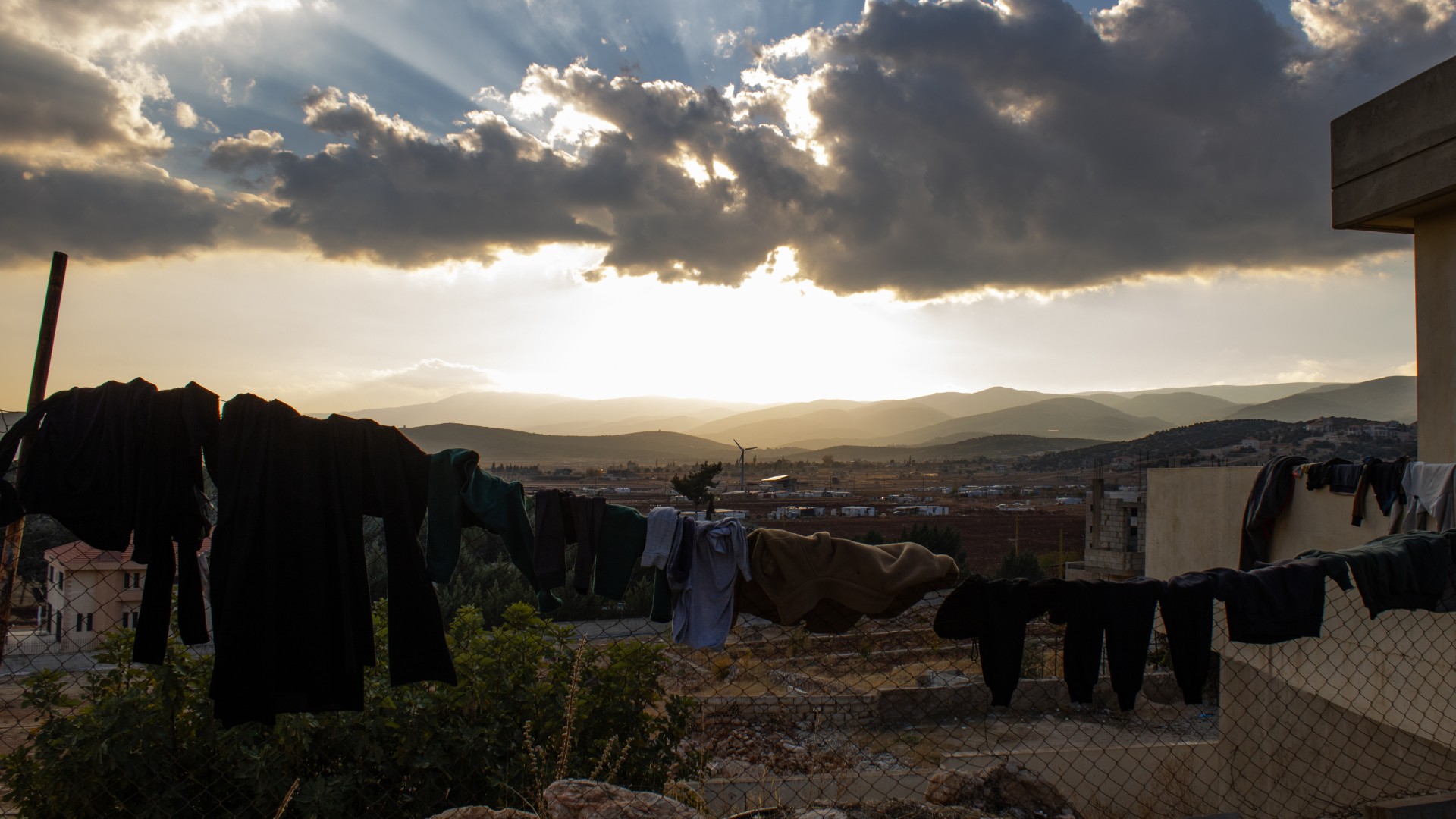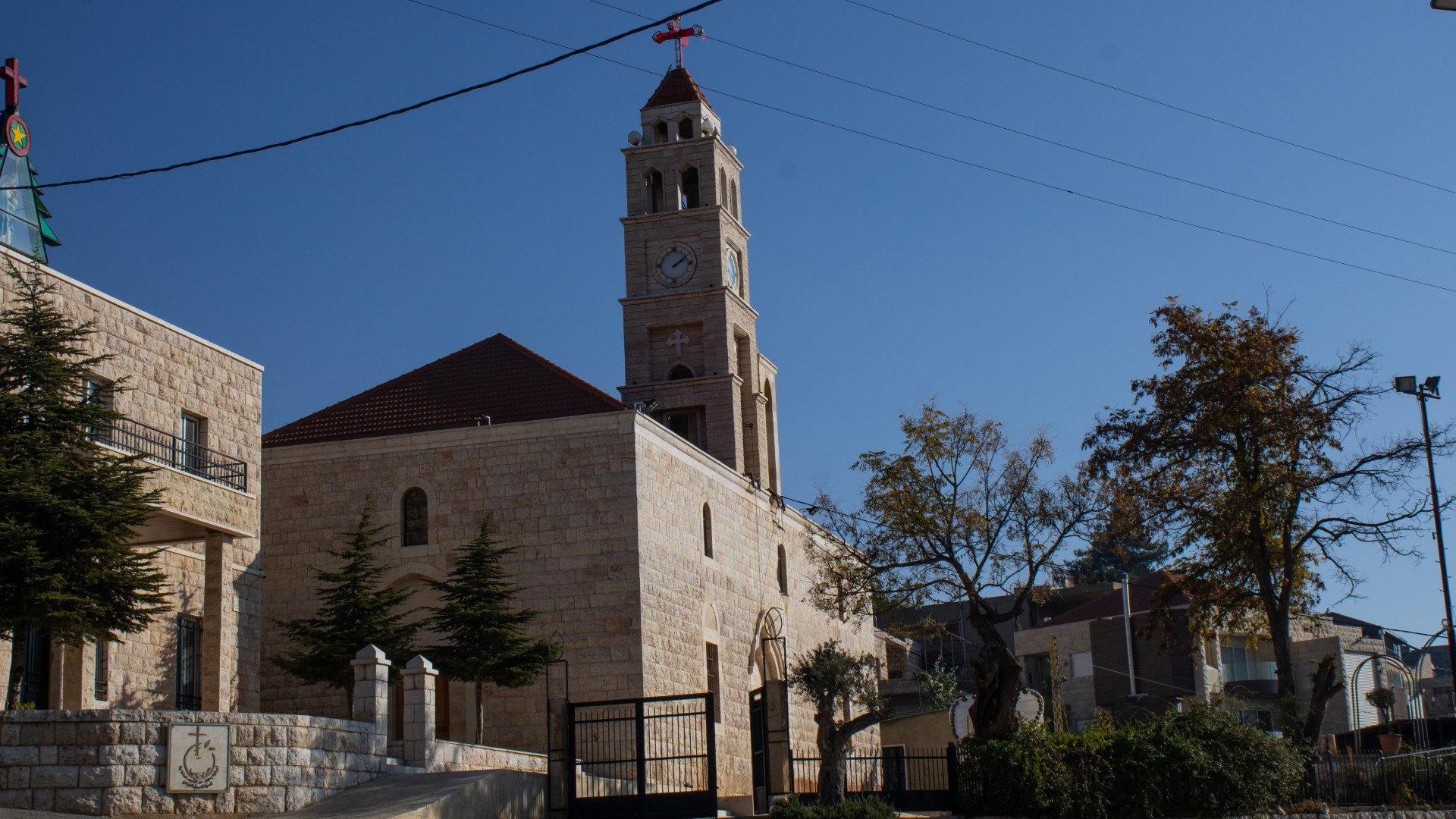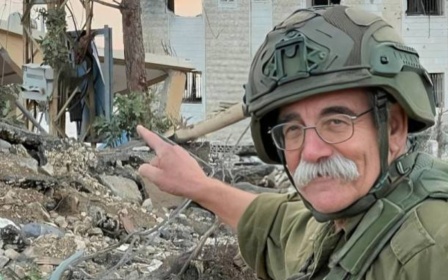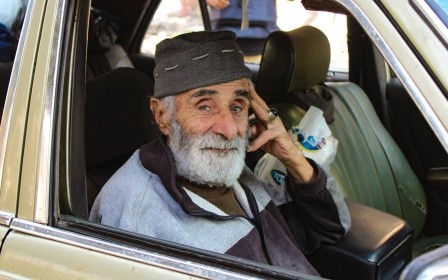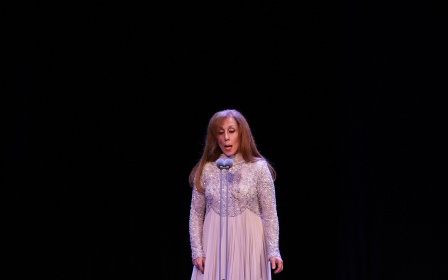A Lebanese Christian village extends a warm welcome to Shia neighbours under attack
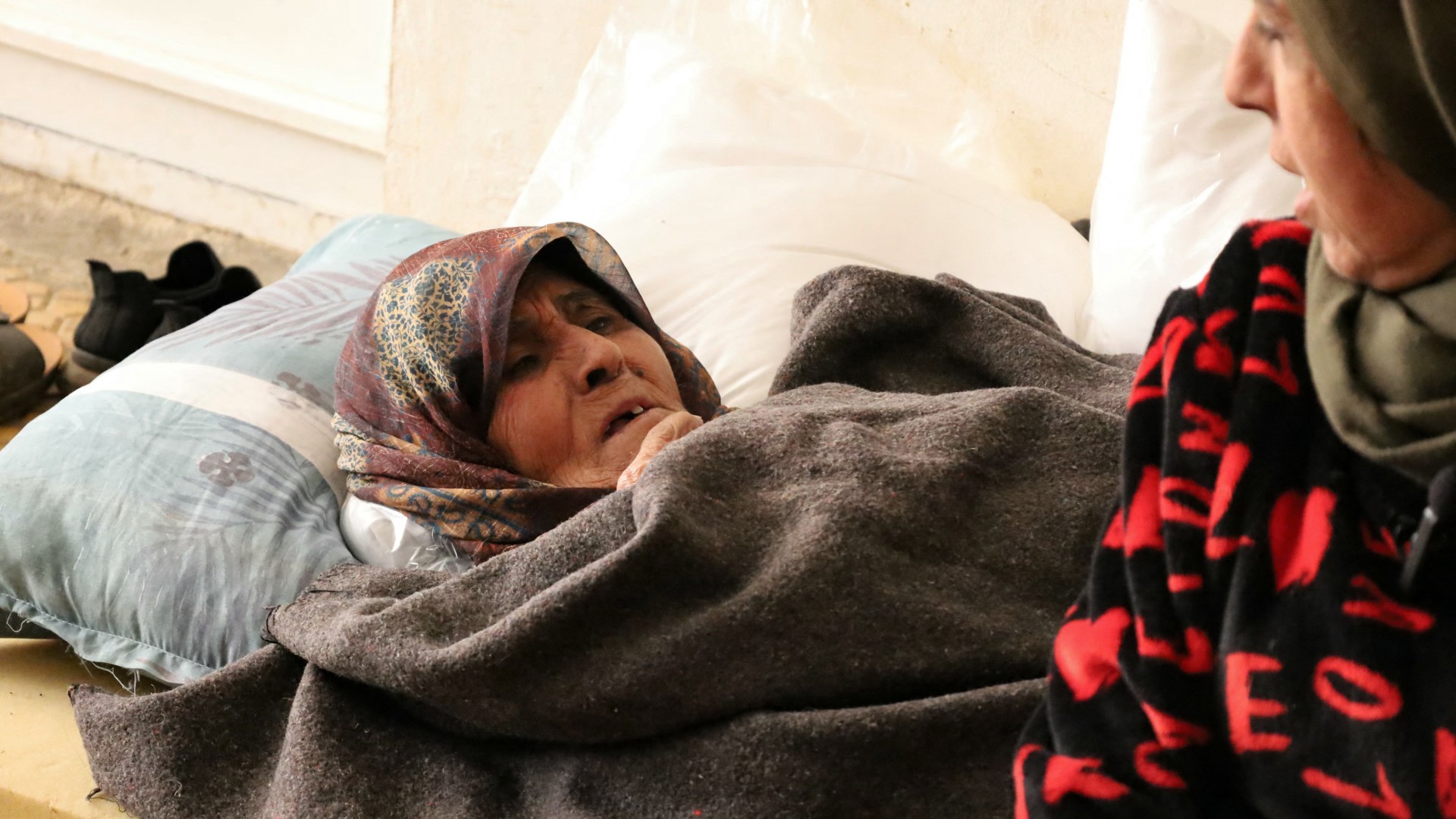
Tucked away in the foothills of Mount Lebanon, the quaint Bekaa Valley village of Deir al-Ahmar has become a sanctuary for thousands of people fleeing intense Israeli bombardments nearby.
In just over two months, it has swelled to more than three times its size, as homes, churches, and schools have opened their doors to around 12,000 displaced Lebanese.
The entire surrounding municipality, comprising 13 Christian villages, is hosting up to 22,000 people, twice the number of its usual inhabitants.
Most are Shia, the community that Hezbollah draws the majority of its support from and that has been bearing the brunt of Israel’s attacks on Lebanon.
A large majority of Deir al-Ahmar’s residents support the Lebanese Forces, a right-wing Christian political party and Hezbollah opponent that was originally an armed group that fought in Lebanon’s 1975-90 civil war.
New MEE newsletter: Jerusalem Dispatch
Sign up to get the latest insights and analysis on Israel-Palestine, alongside Turkey Unpacked and other MEE newsletters
But despite these opposing political views, Deir al-Ahmar residents have welcomed their Shia neighbours.
“Treating your neighbours well is a pillar of Deir al-Ahmar,” the village’s mayor, Jean Fakhry, told Middle East Eye. “It wasn’t an obstacle for us to be humane towards each other.”
‘It’s in our blood to volunteer’
Many fled to Deir al-Ahmar from Baalbek, an ancient city about 17 kilometres away that has been pounded with Israeli air strikes.
“It's in our blood to volunteer,” said Rana Rahme, who was volunteering with Catholic charity Caritas at one of the displacement shelters.
The shelter was a school before Israeli attacks on Lebanon ramped up in September. It houses 750 people and is one of six shelters in the area.
From its hilltop position, plumes of smoke from bombings can be seen billowing across Bekaa’s fields.
“We have been neighbours for a long time,” Rahme said. “Before the war, we’d go to Baalbek every day and they’d come to us. We know many of them, and they know many of us. They are in need, they left their homes with no food, mattresses or money.”
Nour Taha, a teacher from Baalbek in her late 20s, gazed out the window in the shelter’s courtyard. She said she often watches the Israeli strikes below, worried about her family who stayed home.
Israel’s bombardment of the Baalbek region has been relentless. On 21 November alone strikes killed at least 47 people. Israel has killed more than 3,700 people in Lebanon since Hezbollah and the Israeli military began clashing in October last year in response to the war on Gaza.
Taha said her parents have “courageous hearts”. “Unlike me. I get scared easily,” she added.
“I miss them so much and I’m trying to go see them, but I’m unable to. I try to leave every day but [Israel] keeps attacking, so I don’t have enough courage,” she sighed.
On 30 October, the Israeli army issued an expulsion order for all of Baalbek, prompting a mass exodus.
Rabih Saade, who is coordinating the aid response in Deir al-Ahmar, said they received around 3,800 cars from Baalbek within two hours of the Israeli threat.
“We didn’t have beds for them in the houses or in the shelters, so they slept on the ground, in churches and in homes,” Saade said. Most have since returned.
At first, NGOs and large humanitarian organisations were absent from the aid response in Deir al-Ahmar. So villagers like Saade and Rahme filled the gap, with support from the Lebanese Forces. “The Lebanese Forces are providing everything they can, helping with all the needs that weren’t met by the NGOs,” Saade said.
He noted the party has provided the displaced with food, which often runs low, as well as 10,000 litres of fuel to power the shelter’s generator.
Communal tensions
Israel’s bombing and ground invasion has displaced more than a million Lebanese, the vast majority Shia from the south, the Bekaa and Beirut’s southern suburbs.
Occasionally, Israel has targeted displaced Shia sheltering in buildings in areas that are majority Christian, Sunni or Druze, making some residents fearful of hosting people.
In Beirut’s predominantly Christian Ain al-Remmaneh neighborhood, residents affiliated with the Lebanese Forces patrol the streets, reporting “suspicious” behavior. In early October, police in west Beirut’s Hamra attempted to forcibly evict displaced people from a building at the request of its owner, which resulted in bloody clashes.
There has been some speculation that Israel intended to stoke these communal tensions by forcing Shia into areas usually occupied by Lebanese of other sects, destabilising the country in the process.
However, Deir al-Ahmar has for the most part managed to avoid such tensions. Taha said the village’s residents had been “really good” to their neighbours from Baalbek.
“They don’t distinguish between people if the person was from a different religion. No one has caused us harm, but in fact, it is the complete opposite,” she said.
But after an Israeli attack in Aitou, where 23 displaced people were killed in a mountainous Christian village similar to Deir al-Ahmar, precautions started being taken about who could enter the shelters.
Saade says they check people’s IDs to make sure people aren’t members of Hezbollah.
“We tell them, ‘We can accept your family, but you have to leave’.”
According to Saade, some people in shelters have warned that a member of the movement is among them.
“If someone dangerous enters the shelter, they tell us that they’re scared of them, and ask us to tell him to leave,” he said.
Winter looms
Recent days have seen plummeting temperatures and the first of the season’s snow settling on the mountains. It won’t be long until two of the three roads into Deir al-Ahmar are buried under snow, cutting off vital routes for aid.
The last road passes through areas routinely targeted by Israel and is extremely dangerous. The UN had to postpone activity there for a whole week last month due to intense Israeli strikes.
Fakhry, the mayor, is worried aid will be harder to access just as people need it most: blankets and fuel will be in much greater demand as the weather gets colder and colder.
“We are calling for more support so we can stand next to these displaced people and provide them with the materials they need,” he said.
Taha thinks the shelter will just be too rough to endure the winter. There is a lot of optimism that a ceasefire is imminent, but whatever happens Taha is going to head back to Baalbek.
“I can’t stay in the school when it’s winter, it’s just not feasible,” she said. “I hope the war ends soon.”
Middle East Eye delivers independent and unrivalled coverage and analysis of the Middle East, North Africa and beyond. To learn more about republishing this content and the associated fees, please fill out this form. More about MEE can be found here.


